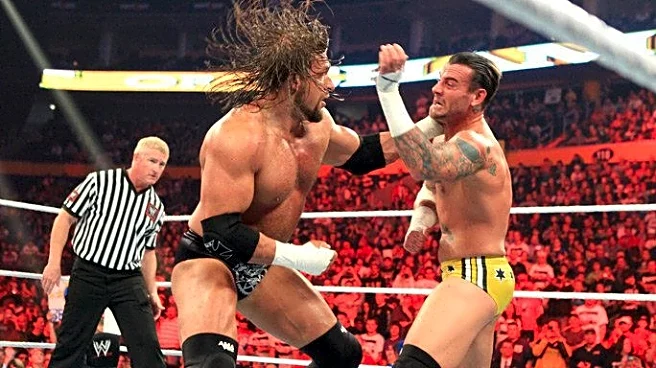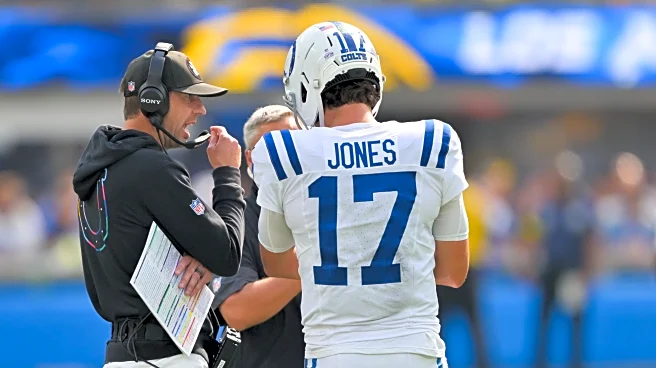What is the story about?
What's Happening?
Jayden Daniels, the Washington Commanders quarterback and 2024 No. 2 overall NFL draft pick, has been showcasing his dual-threat abilities since joining the league. In the 2025 season, Daniels surprised fans by wearing both American and Japanese flag decals on his helmet. This move highlights his Japanese heritage, which stems from his maternal grandmother. The NFL has allowed players to represent their heritage on their helmets since 2022, initially during select weeks, but expanded this to year-round in 2024. Daniels, who won the Offensive Rookie of the Year Award in 2024, is not a Japanese citizen, as his connection to Japan is through his grandmother. His parents, Javon Daniels and Regina Jackson, are locals from San Bernardino, California.
Why It's Important?
Daniels' decision to display the Japanese flag on his helmet underscores the NFL's growing emphasis on diversity and cultural representation. This initiative allows players to express their personal heritage, fostering inclusivity within the league. For Daniels, it is a way to honor his family's background and connect with his roots. The move may inspire other players to similarly celebrate their heritage, potentially influencing the league's cultural dynamics. It also highlights the importance of personal identity in professional sports, where athletes often serve as role models for embracing one's background.
What's Next?
As the NFL continues to promote cultural representation, more players might choose to display their heritage on their helmets, leading to increased visibility of diverse backgrounds within the league. This could prompt discussions on heritage and identity among fans and players alike. The league may further expand initiatives to celebrate diversity, potentially introducing new programs or events. Daniels' choice might also encourage other sports leagues to adopt similar practices, broadening the scope of cultural representation in professional sports.
Beyond the Headlines
Daniels' helmet decals could spark broader conversations about identity and representation in sports, challenging traditional norms and encouraging athletes to embrace their backgrounds. This development may influence younger generations, promoting acceptance and pride in one's heritage. It also raises questions about the role of sports in cultural diplomacy, as athletes like Daniels bridge cultural gaps and foster international connections through their personal stories.















